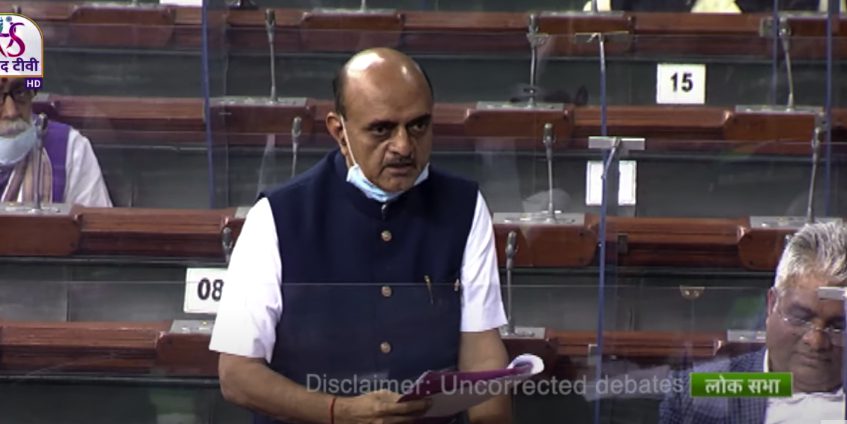In a written reply in Lok Sabha, Union Minister of State for Finance Bhagwat Karad informed that the RBI imposed 176 penalties worth Rs 14.04 crore on cooperative banks during the 2022-23 financial year.
The Union Minister of State for Finance said that during the last nine years, fifty-seven banks were closed out of which 55 are cooperative banks and three banks including PMC Bank, Lakshmi Vilas Bank and Yes Bank were revived.
Besides, “On 13 December 2023, thirty-nine Urban Co-operative Banks (UCBs), including four in Karnataka, namely, Sri Guru Raghavendra Sahakara Bank Niyamitha, Shimsha Sahakara Bank Niyamitha, the Hiriyur Urban Co-operative Bank Ltd. and the National Cooperative Bank Ltd., have been issued directions under 35A of the Banking Regulation Act, 1949”.
“As on 31st March 2022, 14 urban cooperative banks were closed in which Malkapur Urban Cooperative Bank had the highest business mix of Rs 1,521 crore”, he added.
Besides, seven and five penalties worth of Rs 12.17 crore and Rs 4.65 imposed on Private Sector Banks and Foreign Banks respectively during the year, informed Karad. Similarly, during the year, RBI imposed 11 penalties worth of Rs 4.39 crore imposed on the NBFCs and seven penalties worth of Rs 3.65 crore on Public Sector Banks.
He further said, RBI has further informed that it is mandated to take enforcement action as per Enforcement Policy and Framework approved by Board for Financial Supervision of RBI, in the form imposition of monetary penalty on REs for contraventions of different statues and directions issued thereunder.
“RBI has issued guidelines on fair practices code to be adopted by banks, NBFCs and HFCs, and these guidelines cover various aspects related to lending such as transparency and disclosure of various terms and conditions of loan and changes therein, inappropriate behaviour during recovery of loans, release of securities after repayment of loan, loan appraisal etc, he underlined.
Further, all banks and other REs, are required to comply with the guidelines issued by RBI from time to time. RBI examines the compliance to its guidelines on sample basis during the supervisory assessment and any non-compliance are taken up with the respective supervisory entities for rectification apart from initiating supervisory/ enforcement action, as deemed fit.


















































